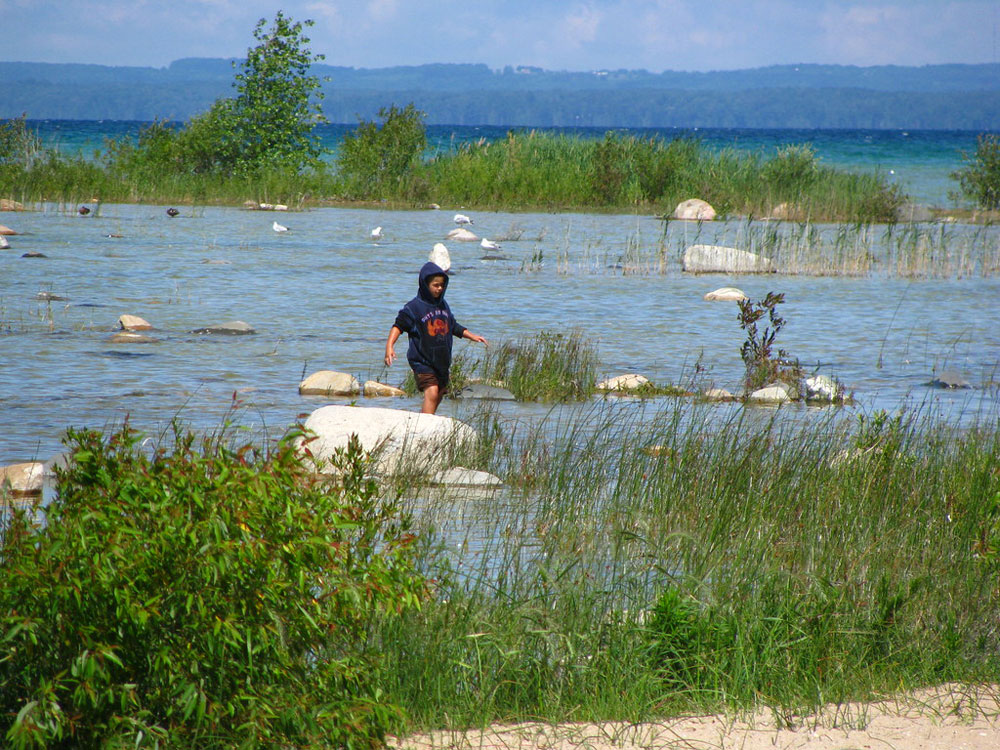
August 16, 2019; Michigan Radio
Too many fish in the bay to count? Maybe, but the Cerulean Center, a nonprofit in Michigan, is training volunteers to work alongside scientists to collect data on fish so they can better characterize the ecosystem of Grand Traverse Bay in Lake Michigan. Their work could lead to better informed stewardship decisions and more opportunities to prevent the spread of invasive species.
As NPQ has regularly covered, citizen science has tackled many of the world’s biggest problems, from climate change to unsafe drinking water to the spread of disease. The work of these eager volunteers doesn’t just provide important aid to the research project at hand; it also inspires new advocates with a better understanding of the role of science in finding solutions.
According to the National Wildlife Federation, the Great Lakes hold nearly 20 percent of the Earth’s surface freshwater. The Cerulean Center focuses on protecting this important resource, leveraging the curiosity of their community to lead to scientific breakthroughs and public understanding.
Sign up for our free newsletters
Subscribe to NPQ's newsletters to have our top stories delivered directly to your inbox.
By signing up, you agree to our privacy policy and terms of use, and to receive messages from NPQ and our partners.
Volunteers are trained on-site to be consistent in their data collection methods and to follow the protocols ensuring their work is comparable to that of other volunteers as well as research projects in other parts of the Great Lakes. People of all ages and science backgrounds have participated in the research.
“I see how they’re counting the fins, I see how they’re measuring them,” volunteer Dale Treese shared. “I see what kind of sampling they’re taking, and how we handled them with our wet hands and not dry hands, so I’ve learned an awful lot.”
The end goal is a better understanding of the bay’s ecosystem as a whole, so emerging invasive species are identified earlier and prevention in new areas like Grand Traverse Bay is more realistic. Cerulean Center’s project launched in Spring 2019 and will continue through 2020.
Citizen science is a great example of how engaging the community can lead to bigger and better outcomes for nonprofits. With over 1,500 projects around the world, it’s amassing important data and making science more accessible to all.—Julie Euber










